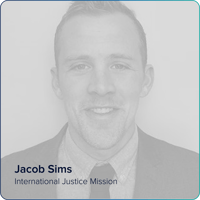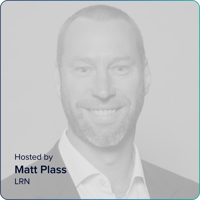All leadership in the 21st century is undergoing a significant transformation. Traditional leadership styles and models are no longer adequate for the complex and rapidly changing world we find ourselves in. In a recent episode of the leadership podcast that Tom Fox hosts, Dan Silberberg, a leadership expert and founder of the Leader Council Program, emphasized this message. This is significant to all chief compliance officers, compliance leaders, and compliance professionals aspiring to the CCO chair.
Silberberg has developed a year-long program designed to enhance the engagement and effectiveness of C-suite executives. The program helps leaders understand their thought patterns and behaviors, providing benefits like promotions and increased visibility within their organizations. It also addresses the need for adaptable leadership styles to cater to different generations in the workplace, emphasizing the importance of understanding what motivates each generation.
One of the significant shifts in leadership is the move from traditional hierarchical business models to ecosystem-based models. This model is essential for the compliance professional as it prioritizes integrity, competence, and value alignment. Instead of top-down command and control structures, self-managed groups are becoming more prevalent. Within these groups, individuals are empowered to make decisions based on integrity, competence, and shared purpose. This approach allows for greater engagement and input from all members, regardless of their generation.
The key for the compliance professional is two-fold. The first is to recognize such groups within your organization and to reach them with communications and ongoing messaging on compliance so that they might cascade this into the group. The second is to recognize this within your compliance function and how, as a CCO, you manage your compliance team going forward.
Another critical area for the CCO and compliance professional is the literal generations of employees across the workspace. Your work environment could include employees from the Greatest Generation, Boomers, GenXers, Millennials, and GenZers. The presence of five generations in the workplace poses a unique challenge for compliance functions and compliance leaders. Each generation has different focuses, buzzwords, ways of communicating, and ways of thinking. The traditional, one-size-fits-all approach to leadership is no longer practical. Instead, leaders need to embrace the diversity of generations and create an environment where everyone’s input is valued. By aligning values, principles, and purpose, leaders can engage all generations and build a sense of meaning and purpose in their work.
Another challenge in leadership development is the transition from technical expertise to middle management roles. Highly technically competent individuals are often promoted to middle management without the necessary leadership skills. This can lead to difficulty in responding to employee concerns and effectively managing teams. To succeed, you must address this gap by providing middle managers with the necessary leadership skills, such as empathy and emotional intelligence. This is of paramount importance around your speak-up culture and internal reporting. Middle managers are most often the first choice for employees to raise concerns, and empathy and emotional intelligence are critical skills for obtaining information from employees who want to speak up and then reporting it up the chain to compliance for evaluation and action.
As a CCO or compliance leader, you will find that leadership development is centered around self-awareness and conscious decision-making. By understanding one’s own thought patterns, behaviors, and emotional reactions, compliance leaders can gain insights into their strengths and areas for improvement. A leadership program where you are exposed to different situations and guided to track back their reactions to their underlying causes process allows for personal growth and new behaviors and outcomes.
Compliance leaders can create positive organizational change and inspire others to do the same by focusing on individual growth and self-improvement. This is important for both your leadership across the organization in compliance and for your compliance team.
Compliance leadership in the 21st century requires shifting from traditional models to more adaptable and inclusive approaches. Understanding the motivations and values of different generations is crucial for engaging all workforce members. Developing middle managers with leadership skills is also essential for effective team management. Leaders can unlock their potential and create positive organizational change by fostering self-awareness and conscious decision-making. As compliance leaders, whether as CCOs or compliance professionals, a comprehensive and transformative approach to leadership development in 2025 and beyond will be a critical skill to garner.








